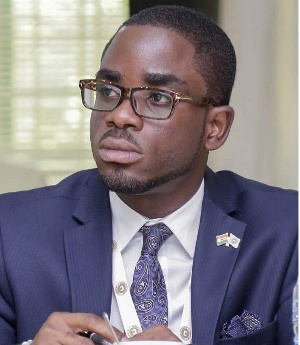“I promise on my honor, to be faithful and loyal to Ghana my motherland! I pledge myself to the service of Ghana, with all my strength and with all my heart. I promise to hold in high esteem. Our heritage, won for us through the blood and toil of our fathers; and I pledge myself in all things. To uphold and defend the good name of Ghana – so help me God!”
These are the exact words of the national pledge of Ghana. As an oath of allegiance to the nation it embodies a solemn promise and commitment by all citizens, irrespective of their stature or class, to defend, uphold and be loyal to the nation and all that pertains to its well-being. Like it is said “no man is above the law and no man is below it” thus obedience to this solemn promise is demanded collectively as of right and not asked as a favor.
To a higher degree, persons who are entrusted with the highest honor of serving the nation in public capacity are required to abide by this pledge and other codes of conduct as their leadership privilege demands. Public service is indeed a public trust, accordingly those privileged to lead through serving this great nation are required to be faithful and loyal to the motherland and its people by who’s will the ultimate power was entrusted. These leaders are highly expected to place loyalty to the people, the Constitution and laws of the country above all forms of private gain. They are expected to eschew financial interests that have the tendency to conflict with the conscientious performance of their duty.
Through honest effort they must perform and satisfy in good faith their duties for the benefit of the entire nation and for posterity - conserving and protecting national property in the process. At all cost, they must not allow family, social and other influences to cloud their judgment and performance of their obligations to the state, avoiding impropriety and any appearance of it. With integrity, they should have nothing to fear or hide. With it, the right thing would always be done without any form of guilt. The highest quality of leadership and service is integrity.
However, time and time again the people have been taught that some leaders unless checked are prone to abuse of power to even unbearable extents that involve encroachment on their freedoms, peace, well-being and property. Ghanaians witness varying forms of wrongdoings that can potentially jeopardize the peace they enjoy and could even lead to a final struggle of the “underclass” to unseat the “superclass” due to lack of trust. Many others would be content to remain silent and indifferent – minding their own business whilst these acts continue.
The few “heroes” are those who put their safety and comfort at risk in order to make a difference by “blowing the whistle” and exposing all forms of abuse of power, corruption and the like. These persons are motivated by loyalty to the country and the national pride that comes with championing a positive role in society. Amidst several choices that they could make in life, they choose not to be silent observers but rather being informed of the risks strategically champion the course of exposing several wrongs. Their main role is to simply tell the public what really is going in in secret and more so to hold the leaders accountable to the people ensuring that none of them oversteps the bounds of their power.
Due to lack of understanding of the purpose of “whistleblowing”, these persons are dangerously at risk. The very people whose illegal acts they launched out to expose employ the “smokescreen” tactic as a form of retaliation to place the spotlight on the “whistleblower” rather than the wrongdoing that was sought to be exposed. They do everything to obscure the opposition by attacking the sources, motives, credibility, competence and virtually anything that would work in order to cloud the issue. The main aim is to convey that the person exposing the rot does nothing right – persons who have had a history of brilliant records of performance evaluations until the tactic was employed against them. This in itself is a great evil.
It is important to know that only a free and unrestrained civil society can expose wrongdoings in high places. This protection is very much needed so that those who are willing to not remain silent could work assiduously to bare the secrets of those in high places and accordingly inform the people. It should be the duty of the people to make informed analysis of the circumstances and eventually come to a just conclusion. Besides, “even a dog can distinguish between being stumbled over and being kicked.” Without even leading to the prosecution of those involved, the shame that comes with the whole process serves as a deterrent and goes a long way to benefit the nation. At their best, these willing citizens embody the integrity of the public citizens. Their actions largely add conscience and integrity to our concept of citizenship and they serve as the human element that counteracts the tendency of leaders to put self-interest above all else.
God bless Ghana!
Opinions of Friday, 1 March 2019
Columnist: Reginald Nii Odoi



















